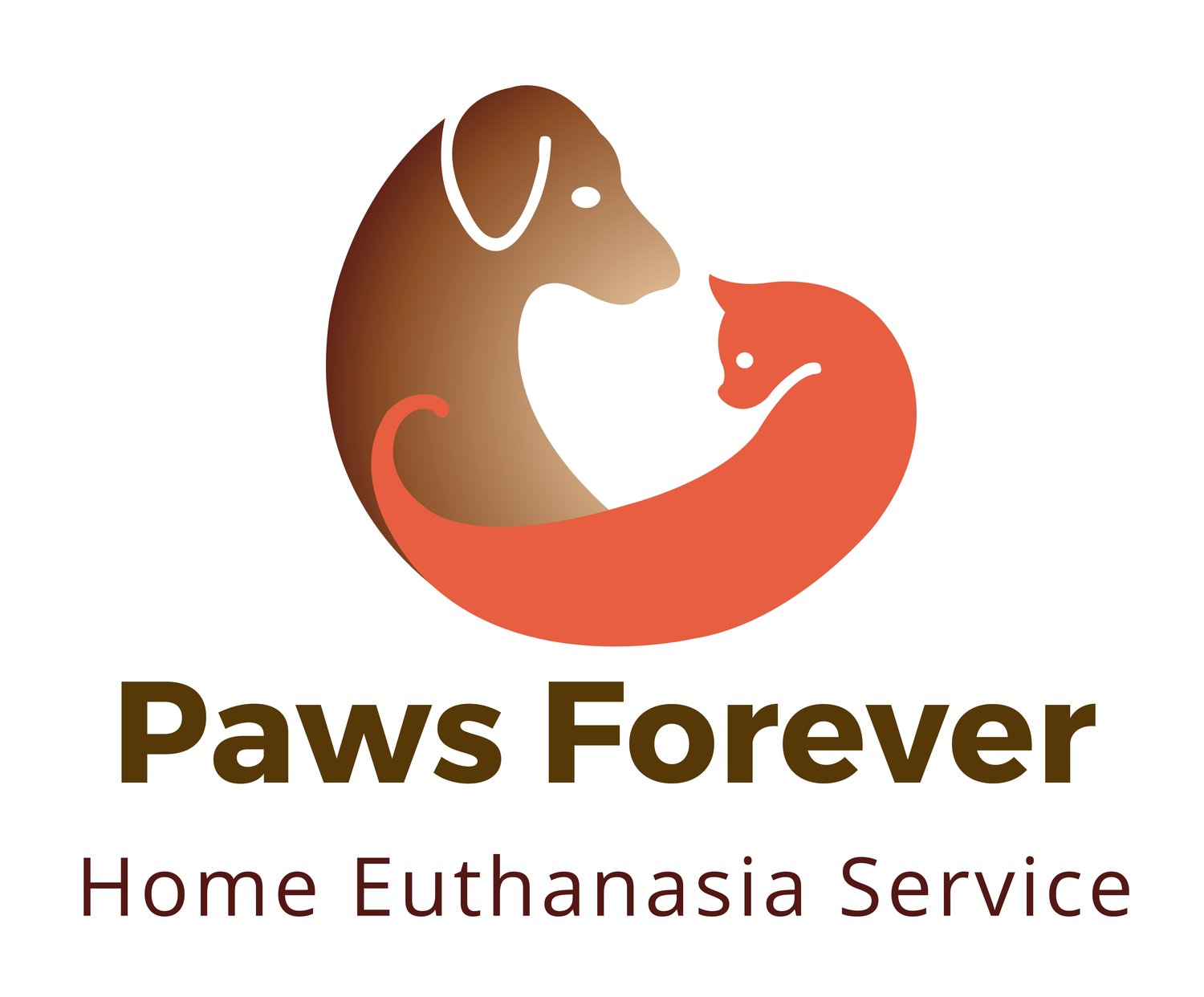MYTHS AND MISCONCEPTIONS ABOUT EUTHANASIA
“My pet will pass away naturally at home without the need for euthanasia.”
Only a very small percentage of our pets experience a “good” death without our help in the form of pain free euthanasia.
Many distressing changes can happen during the dying process: for you, your family and your pet without help from a veterinarian. These include anxiety, difficulty breathing, severe nausea, and seizures are some examples. Home euthanasia can help with preventing your pet suffering unnecessarily.
Many pets who are allowed to die naturally will do so overnight or while the owner is away. Some owners feel regret afterwards because their pet was alone when they died.
At-home euthanasia is offered by many veterinarians and provides a controlled, pain-free option for owners who prefer end-of-life care to happen at home rather than in a veterinary clinic.
“I would be killing my pet.”
Try to remember that your pet’s illness, disease or injury is doing the harm to your pet. Euthanasia provides the opportunity to allow your pet to die humanely and with dignity. It is their illness which causes suffering; you are relieving that suffering in a loving and respectful way.
“Euthanasia is not natural.”
Many owners have religious or spiritual beliefs that euthanasia is wrong. Please be honest with us so that we may try to honor and respect your beliefs, as we help to plan end-of-life care for your pet.
Much of the medical care we provide our pets is, by definition, interrupting a “natural” process or illness.
““Euthanasia is often not so much a question of ‘artificially ending’ a life, but of when to cease artificially extending that life.” ”
“Planning and scheduling the euthanasia is strange.”
It can feel odd or wrong to schedule a time or place for your pet’s euthanasia. By scheduling ahead (even by a few hours or days), you are taking some control over a situation over which you have little power. Many owners find comfort in scheduling a time when friends or family members can be present, or scheduling a time before their pet is truly suffering.
“My pet will know what is happening.”
When handled properly, the euthanasia process is a loving, peaceful, dignified end of a pet’s life. Your veterinarian can give many medications (including sedation and pain medication) that will relieve your pet’s anxiety and pain. Our veterinarians induce deep relaxation (sedation) prior to the euthanasia injection, to ensure that your pet does not experience pain or anxiety.
Animals live in the present moment. Unlike us, they don’t know that a choice is being made—they only know that they are being loved, that you are with them, and that they don’t feel pain anymore.
“I will just know when it’s time.” or “My pet will let me know.”
While there are sometimes signs, events or symptoms that occur that make the choice obvious, often the choice is not clear.
Many families tell us that they waited too long; families rarely tell us they made the decision too soon. Please know that it is normal and natural to second-guess a decision and that second-guessing does not mean you made the wrong choice. In cases of illness or declining quality of life there is truly no wrong decision to be made, only the decision you feel is best for your pet and your family.
While some euthanasia decisions are made in a crisis (such as an acute injury or illness), many euthanasia decisions are made after a gradual decline in quality of life. It can be challenging to trust, moment to moment, that now is the time. Read our "Not Sure if the Time is Right?" section for more information.


